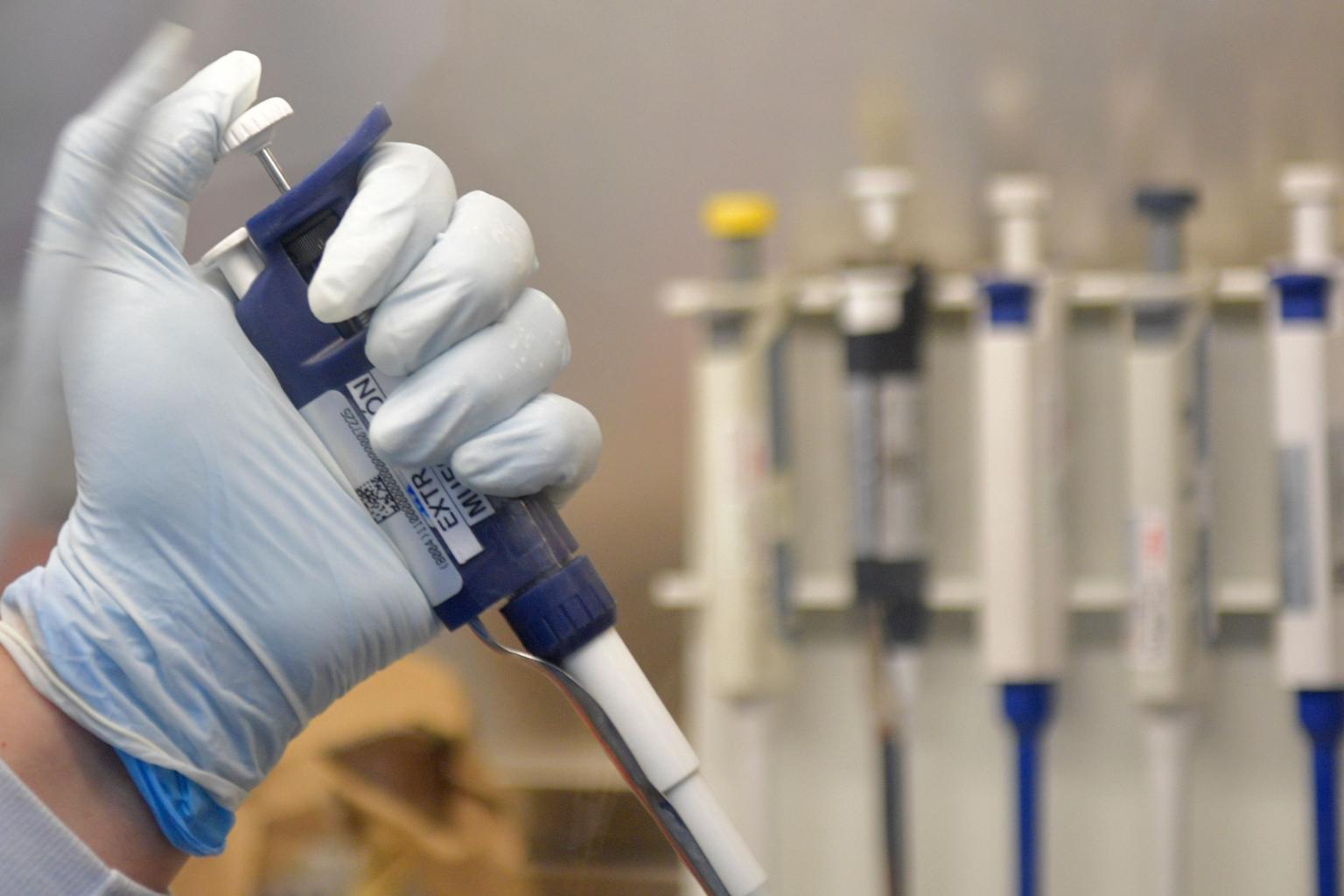Duke-NUS scientists develop speedy test for antibodies that can neutralise coronavirus
Sign up now: Get ST's newsletters delivered to your inbox

When a person is infected with Covid-19, the body produces many different antibodies.
PHOTO: AFP
SINGAPORE - Local scientists have developed a test kit which can tell in a matter of hours if a person has antibodies which can neutralise the coronavirus.
This will enable researchers to collect data more rapidly and address questions that have been raised over the course of the pandemic, as well as to tell whether a Covid-19 vaccine is effective.
Director of the emerging infectious diseases programme at Duke-NUS Medical School, Professor Wang Linfa, who led the research on the test kit, said this is because his test can detect molecules known as neutralising antibodies in a patient.
Speaking to The Straits Times on Thursday (April 30), he explained that when a person is infected with Covid-19, the body produces "hundreds if not thousands" of different antibodies, which bind with the virus and are known as binding antibodies.
However, not all of these antibodies are able to neutralise the virus. This is the role of special antibodies known as neutralising antibodies, which not only bind with the virus but also prevent it from infecting a patient's cells.
Prof Wang said that many tests on the market are able to detect the presence of binding antibodies - but not whether any of these are also neutralising antibodies.
He added that tests that can detect neutralising antibodies are the "gold standard", and can help determine the efficacy of vaccines.
"You take a vaccine in a clinical trial, how do you know if the vaccine is working? You need to measure the neutralising antibody, because the binding antibody is not good enough," he said.
But currently, such tests require the use of a live virus, with very skilled scientists and a highly specialised lab needed to conduct them safely and accurately, making it impossible for the test to be mass produced. Moreover, it takes around three to four days to produce results.
However, Prof Wang and his team found a way to remove the need for the live virus.
This means that his test can be carried out in just one to two hours, and in a normal laboratory.
Prof Wang said that the test has already been fully developed and patented, and a paper on it has been submitted to a top journal.
He added that he hopes the test will help to answer "all the questions in the media being discussed about herd immunity, immunity passports (and) the efficacy of vaccines".


